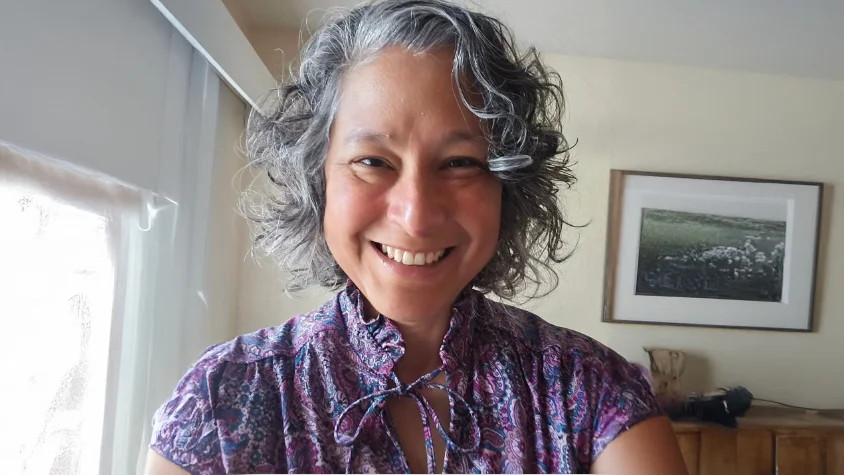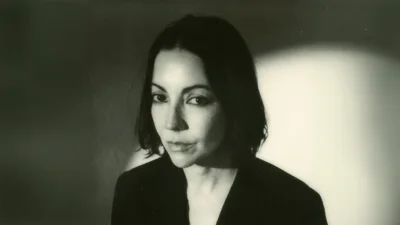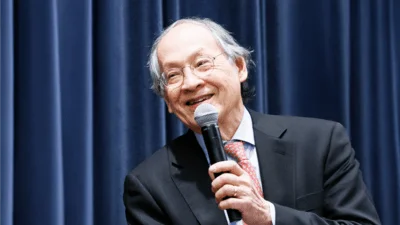When Woz Delgado Flint speaks about typewriters, her enthusiasm spreads like ink on ribbon. At a recent event at the Albuquerque Museum, she captivated her audience with stories of clacking keys, the weight of steel machines, and the quiet discipline that comes with writing unplugged. By the end, even the most devoted laptop loyalist might have been tempted to trade a glowing screen for the rhythmic cadence of typebars on paper.
Flint’s passion is fully captured in her 2023 book, The Distraction-Free First Draft: Unplug, Forget Perfectionism, and Write More Than Ever Using a Typewriter (One Idea Press). Organized into four accessible and lively sections, the book makes a case for typewriters not as relics, but as reliable companions for creativity. Readers are guided through the history and variety of machines, offered practical restoration tips, and encouraged with advice for tackling that most daunting task: finishing a first draft.
Her affection for typewriters, however, isn’t mere nostalgia. For Flint, the typewriter represents freedom from digital distractions and the tyranny of perfectionism. “On a computer, there’s always the temptation to delete, edit, and polish as you go,” she explains. “A typewriter forces you forward—it values momentum over flawlessness.” That shift in mindset, she argues, can liberate writers from procrastination and help them rediscover the pleasure of simply putting words on the page.
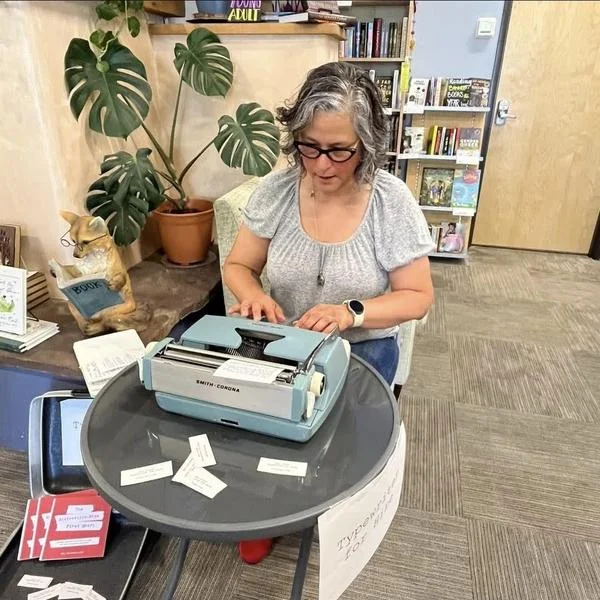 Bookworks as part of Independent Bookstore Day. | Woz Delgado Flint
Bookworks as part of Independent Bookstore Day. | Woz Delgado Flint
I caught up with Flint to talk about her gem of a book.
In your book, you describe your love affair with typewriters. Can you share some of the details with our readers?
I think many creative-leaning people have relationships with their tools, and I’m no different. I’ve had many a tryst with different notebooks, assorted pens, and laptops (I was convinced the MacBook Air was going to make me a lit star). But these were short-lived affairs, and I found myself right back where I was before picking them up—facing blank pages. That was until a typewriter came into my life.
A thrifted gift from my husband and son—more symbolic than one meant to be used—became the reason I started to write consistently and with joy. There’s something special about seeing my words “magically” appear on the paper in front of me. The way the keys cradle my fingertips. The dopamine hit of the bell as the carriage reaches the end of the line. I was no longer flirting; I was in a serious relationship. And we are still going strong to this day.
Why choose a typewriter over a much more practical computer? What is it about typewriters that keeps you hooked?
I’m not sold on the idea of a computer being more practical per se. We may live in a time when they are far more popular than the once-ubiquitous typewriter, but that doesn’t necessarily equate with practicality. I love using a typewriter because it’s always ready to go—there is no need to charge it or to update its software. They weren’t created with planned obsolescence in mind either. If a computer lasts several years, that’s considered a solid product, but it’s not uncommon for a decades-old typewriter to operate as smoothly as it did on its first day.
In The Distraction-Free First Draft, you include a section on people. As someone who has benefited from the knowledge and work of John Lewis (one of the figures you highlight), why do you think some continue to use and promote older technologies?
It’s a cliche, but if it ain’t broke, don’t fix it. Folks like John have seen the rise and fall of many technologies in their day. Some are obsolete, because they simply won’t even turn on. That’s not an issue for any of the typewriters in my collection—most manufactured before I was even born; they work just as well as they did the day they were sold. They were made to last.
What are three key lessons you’ve learned from the people you interviewed for your book?
Choosing only three is tough. I’ll have to go with these: 1) “First drafts should be near madness. They should barely make sense. This is how we get through the threat of perfectionism.” —Amy E. Casey 2) “The best home for a typewriter is one where it’s being used.” —Lisa Floading 3) “Be patient and don’t blame [slow or bad] writing on your machine. It’s not your machine’s fault!” —John Lewis
You’re also part of the Albuquerque typewriting community, ABQwerty Type Writer Society. What are some of the projects your group works on to promote the practical—and pleasurable—aspects of typewriting?
Our growing membership is made of folks who often come for nostalgia or novelty but quickly get interested in the typewriter as a tool. We have a mix of folks who enjoy the mechanics of the machines and others who find satisfaction in using them for creative endeavors. With this in mind, we regularly host public Type-In events where various typewriters are available to test out. This is a great opportunity to try a machine and get guidance while doing so. We also coordinate monthly socials where we gather at a cafe to type and snack in community. In addition, we get together once a month to work on individual writing projects—everything from novels to short stories to letters to be sent via snail mail. There’s something for everyone, no matter if you’ve never used a typewriter before or even if you’re a pro. We love seeing people of all ages get excited about typing, but there is something special about seeing a child’s eyes light up seeing it “magically” print their words immediately.
What are a few basic considerations someone should keep in mind when purchasing a typewriter?
Two main things. One, get the best typewriter your budget can afford, if you are purchasing one to write with. You want a reliable tool, not a repair project. And two, remember that not all typewriters “drive” the same. Just like a car, some look amazing but aren’t fun to drive and vice versa. Just because someone you know really loves a certain model doesn’t mean that it’s going to be the right one for you. If possible, test several before making a final choice. When you find your perfect match, you’ll just know.
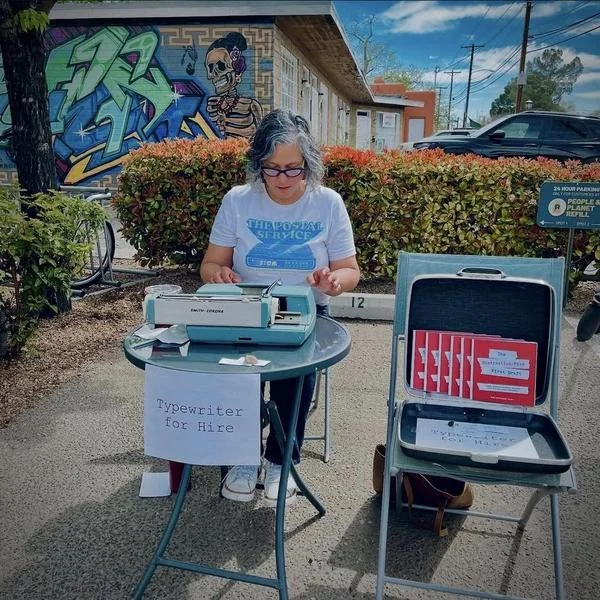 Mindful Market hosted by People Planet Refill in Nob Hill. | Woz Delgado Flint
Mindful Market hosted by People Planet Refill in Nob Hill. | Woz Delgado Flint
*****
For Flint, typewriters are more than mechanical curiosities; they are bridges between past and present, tools that slow us down just enough to think more deeply and write more freely.
To explore her ideas further, look for The Distraction-Free First Draft at your local bookstore—or better yet, bring along your portable typewriter and let the keys remind you that writing can still be beautifully, defiantly analog.
Brian C. Nixon, Ph.D., is Chief Academic Officer and professor at Veritas International University in Albuquerque. As a writer, musician, and artist, his interests surround the philosophical transcendentals: truth, beauty, and goodness. You can contact Brian via his Bandcamp email address: https://briancharlesnixon.bandcamp.com
